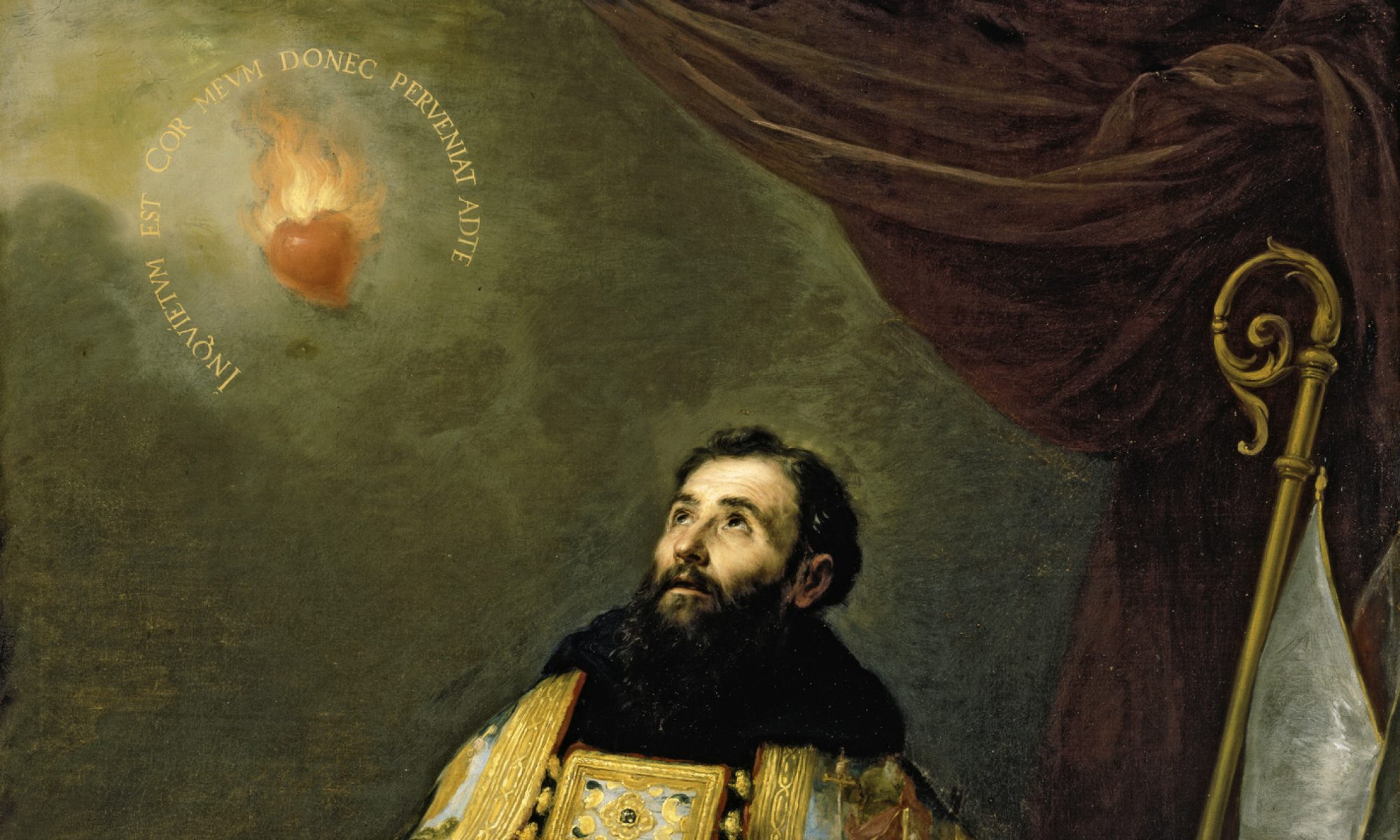Hearing news from around the world through various forms of social media, I feel deeply depressed by the escalating human misery, tragedy, and conflict. Humanity is suffering terribly due to many alarming crises. Yet I never lose faith in God, who walks with us in our suffering.
My only way to hold on is through prayer. I lift up in prayer the children, the elderly, and the innocent civilians directly affected by ongoing wars in places like Israel, Gaza, Ukraine, and Russia. I pray for peace and an end to division. Innocent people are always the collateral damage of human selfishness and pride.
My heart breaks at the sight of people starving just to survive, and yet never giving up hope with each breath they take. When will we finally achieve lasting peace and prosperity for all peoples and nations? Peace and love seem so elusive—how can we attain tranquility and true reconciliation when they are constantly denied?
The first reading from the Book of Jeremiah recounts a tumultuous time in Jewish history, when the prophet foretold the Babylonian destruction of Judah. The temple in Jerusalem was destroyed, and the people were exiled to Babylon for many years. Jeremiah called for true repentance, urging the people to return to God. However, they turned a deaf ear to his constant warnings. Their rebellion and idol worship led to their downfall and separation from God.
Though Jeremiah was a messenger of God, speaking truth and righteousness, only a few believed in him. Despite rejection, he remained faithful to his mission.
In our modern time, we too are called to be like Jeremiah—courageous in speaking the truth, even in the face of resistance or persecution. We must be prophetic witnesses who fight against injustice, lies, and fake news, boldly proclaiming the message of God.
The second reading from the Letter to the Hebrews reminds us that we are “surrounded by so great a cloud of witnesses.” These are the faithful who have persevered through the trials of life. The reading highlights that Jesus’ followers form a “new race”—a people renewed through baptism, living signs of new life in Christ.
Though we are still on this earth, we are called to persevere until we reach heaven. We must keep our eyes fixed on Jesus, the surest path to the finish line. Let us avoid the distractions that pull us away from Him. If we lose our way, let us always seek comfort in Christ, who patiently waits for us and leads us home. We are not alone; the communion of saints cheers us on and intercedes for us.
In the Gospel of Luke, Jesus tells His disciples:
“I have come to set the earth on fire, and how I wish it were already blazing!”
Here, “fire” symbolizes God’s presence and purifying love. Jesus longs for this fire to spread, burning away sin and igniting hearts with divine mercy. The fire of His love purifies and transforms us.
Jesus continues:
“There is a baptism with which I must be baptized, and how great is my anguish until it is accomplished!”
This refers to His impending death on the cross—His ultimate act of love and sacrifice. Through His death, we are united with Him in baptism. In baptism, we die to sin and rise as new creations in Christ, on the path to salvation.
Then Jesus says something seemingly contradictory:
“Do you think that I have come to establish peace on earth? No, I tell you, but rather division.”
How can this be? Isn’t He the Prince of Peace, as proclaimed by the angels?
Indeed, Jesus is peace—but not the kind the world understands. He did not come simply to make everyone “get along.” The peace He offers is deeper: it is an inner peace that transcends conflict and division. It’s a peace that abides even in times of war, suffering, and turmoil. It is the peace found in surrendering to God amid our restlessness.
When we allow Jesus to reign in our hearts, we can experience joy, calm, even ecstasy and awe—even in the midst of adversity.
At times, following Jesus leads us into conflict, even within our own families. Why? Because many are not yet ablaze with the fire of His love and mercy. Not everyone who claims to be in the Church is truly walking with Christ. Sadly, many have turned away from God.
Still, we are constantly called to believe, to respond to God’s invitation like the multitude of witnesses who came before us. Let us not “grow weary or lose heart.” As Pope Leo reminds us, healing comes when we surrender completely to Jesus, our faithful friend.
God bless you.
Fr. Arlon, OSA
El Dictado del Corazón
Vigésimo Domingo del Tiempo Ordinario, Año C
- Jeremías 38, 4–6. 8–10
- Salmo Responsorial 39, 2. 3. 4. 18
- Hebreos 12, 1–4
- Lucas 12, 49–53
Al escuchar las noticias de todo el mundo a través de diversas formas de redes sociales, con frecuencia me siento profundamente desanimado por la creciente miseria humana, las tragedias y los conflictos. La humanidad sufre terriblemente a causa de muchas crisis alarmantes. Sin embargo, nunca pierdo la fe en Dios, quien camina con nosotros en medio del sufrimiento.
La única manera en que puedo mantenerme firme es por medio de la oración. Elevo mis oraciones por los niños, los ancianos y los civiles inocentes afectados directamente por las guerras en curso en lugares como Israel, Gaza, Ucrania y Rusia. Oro por la paz y el fin de la división. Las personas inocentes siempre son el daño colateral del egoísmo y del orgullo humano.
Se me parte el corazón al ver a personas que pasan hambre solo para sobrevivir, y aun así no pierden la esperanza con cada aliento que toman. ¿Cuándo lograremos finalmente una paz duradera y prosperidad para todos los pueblos y naciones? La paz y el amor parecen tan inalcanzables. ¿Cómo alcanzar la tranquilidad y la verdadera reconciliación cuando constantemente se nos niegan?
En la primera lectura, del libro del profeta Jeremías, escuchamos acerca de un tiempo turbulento en la historia del pueblo judío, cuando el profeta anunció la destrucción de Judá por los babilonios. El templo en Jerusalén fue destruido, y el pueblo fue exiliado a Babilonia durante muchos años. Jeremías llamaba a una verdadera conversión, exhortando al pueblo a volver a Dios. Sin embargo, hicieron oídos sordos a sus constantes advertencias. Su rebeldía y adoración a ídolos los llevaron a la ruina y al alejamiento de Dios.
Aunque Jeremías era un mensajero de Dios, que hablaba con verdad y rectitud, solo unos pocos creyeron en él. A pesar del rechazo, permaneció fiel a su misión.
En nuestro tiempo, también nosotros estamos llamados a ser como Jeremías: valientes al proclamar la verdad, incluso frente a la resistencia o la persecución. Debemos ser testigos proféticos, firmes contra la injusticia, la mentira y las noticias falsas, proclamando con valentía el mensaje de Dios.
En la segunda lectura, de la Carta a los Hebreos, se nos recuerda que estamos “rodeados de una nube tan grande de testigos.” Estos son los fieles que perseveraron en medio de las pruebas de la vida. El pasaje revela que los seguidores de Jesús forman una “nueva raza”: un pueblo renovado por el bautismo, signos vivientes de la vida nueva en Cristo.
Aunque aún caminamos en esta tierra, estamos llamados a perseverar hasta llegar al cielo. Debemos mantener la mirada fija en Jesús, el camino más seguro hacia la meta final. Evitemos las distracciones que nos apartan de Él. Y si nos desviamos, busquemos consuelo en Cristo, quien nos espera con paciencia y nos guía de regreso a casa. No estamos solos; la comunión de los santos nos anima e intercede por nosotros.
En el Evangelio de hoy, según san Lucas, Jesús dice a sus discípulos:
“He venido a prender fuego en el mundo, ¡y cómo quisiera que ya estuviera ardiendo!”
Aquí, el “fuego” simboliza la presencia de Dios y su amor purificador. Jesús anhela que este fuego se extienda, consumiendo el pecado e inflamando los corazones con su misericordia divina. El fuego de su amor nos purifica y transforma.
Jesús continúa:
“Tengo que recibir un bautismo, ¡y cuánto me angustio mientras llega!”
Esto se refiere a su inminente muerte en la cruz, su acto supremo de amor y sacrificio. A través de su muerte, somos unidos a Él por el bautismo. En el bautismo, morimos al pecado y renacemos como nuevas criaturas en Cristo, en camino hacia la salvación.
Después, Jesús dice algo que parece contradictorio:
¿Piensan acaso que he venido a traer paz a la tierra? De ningún modo. No he venido a traer la paz, sino la división.
¿Cómo puede ser esto? ¿No es Él el Príncipe de la Paz, como lo proclamaron los ángeles?
En efecto, Jesús es La Paz, pero no la paz como el mundo la entiende. No vino simplemente para que todos se “lleven bien.” La paz que Él ofrece es más profunda: es una paz interior que trasciende el conflicto y la división. Es una paz que permanece incluso en tiempos de guerra, sufrimiento y caos. Es la paz que se encuentra cuando nos rendimos a Dios en medio de nuestra inquietud.
Cuando dejamos que Jesús reine en nuestros corazones, podemos experimentar gozo, calma, incluso éxtasis y asombro, aun en medio de la adversidad.
A veces, seguir a Jesús nos lleva al conflicto, incluso dentro de nuestras propias familias. ¿Por qué? Porque muchos aún no arden con el fuego de su amor y misericordia. No todos los que dicen pertenecer a la Iglesia caminan realmente con Cristo. Tristemente, muchos se han alejado de Dios.
Aun así, constantemente se nos llama a creer, a responder a la invitación de Dios como lo hizo la multitud de testigos que nos precedieron. No nos “cansemos ni perdamos el ánimo.” Como nos recuerda el Papa Leó, la sanación llega cuando nos rendimos por completo a Jesús, nuestro fiel amigo.
Que Dios los bendiga,
P. Arlon, OSA

